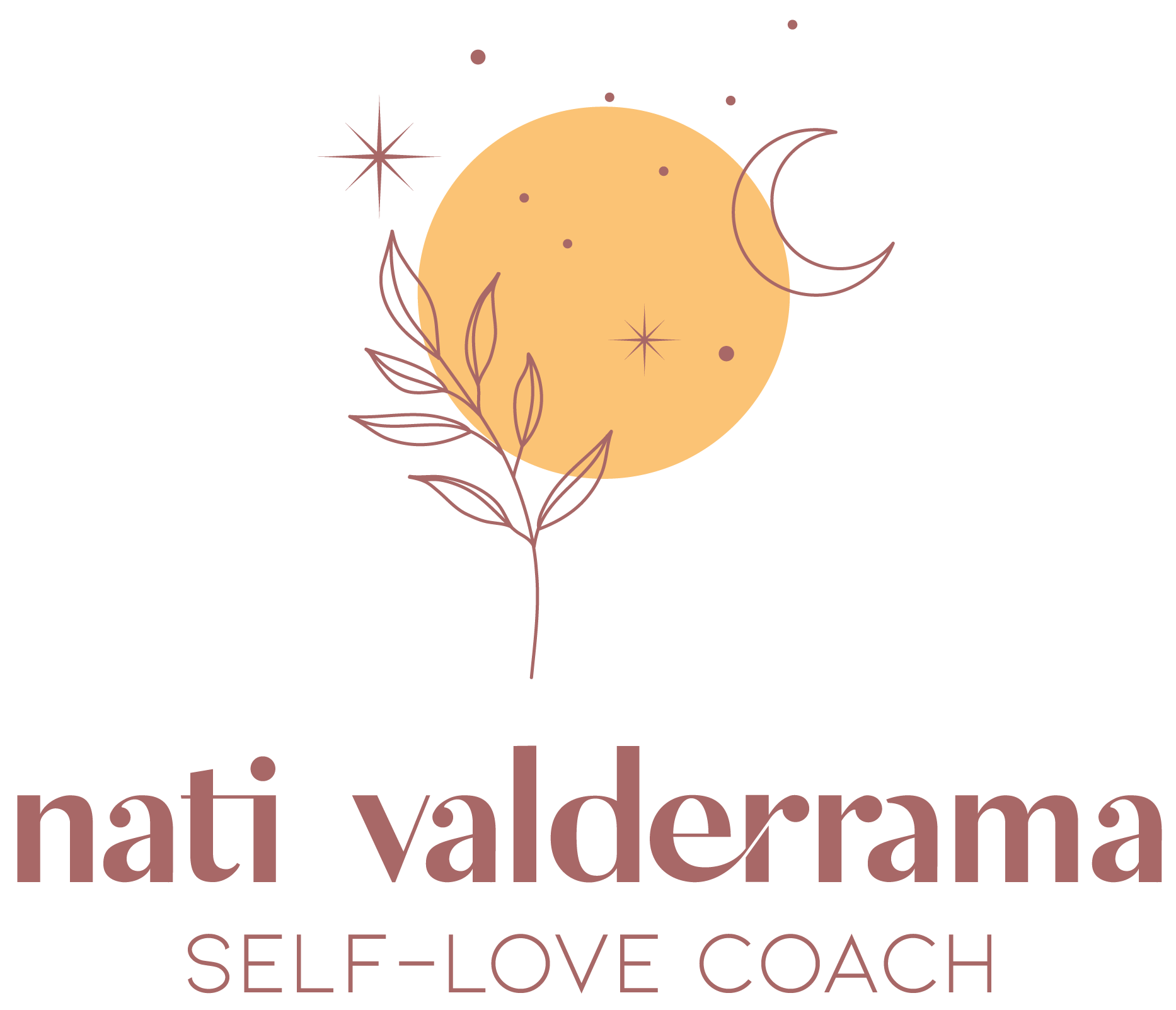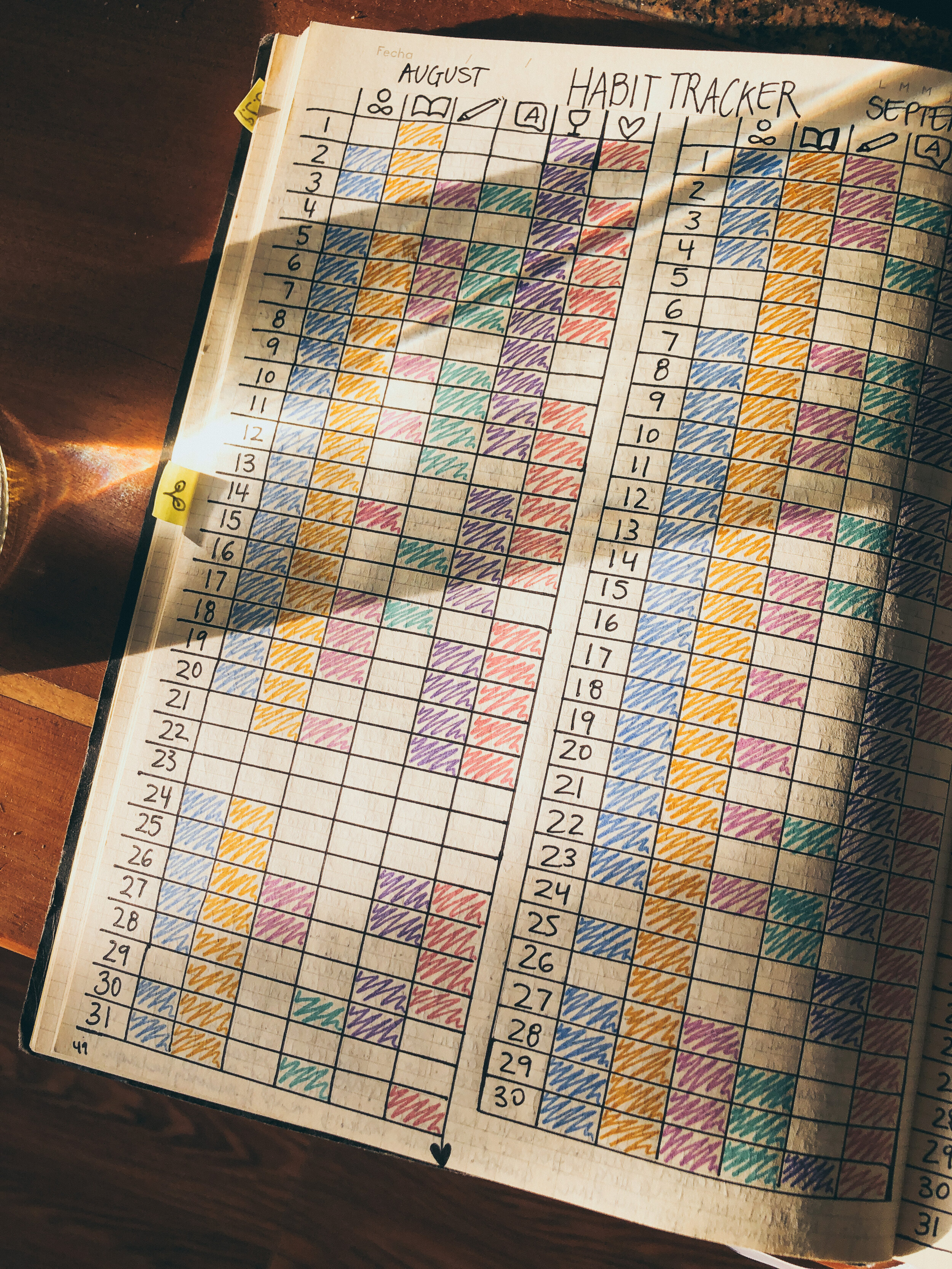Habit Tracking 101 - Why, What and How to Habit Track
If you’ve been wanting to acquire new habits and make them stick, Habit Tracking is an effective way to do just that. I started Habit Tracking in June 2020 and it has been a great way for me to stick with my habits and add new ones into my habit rotation.
Before getting into the HOW, I wanna start with the WHY and the WHAT. A lot of the information I’ve gathered here has come from the book Atomic Habits by James Clear, which I cannot recommend enough.
Why Habit Track?
It all starts with Behavior Change. If you’re looking to integrate a new habit or remove a not so great habit from your life, it’s important to know WHY you’re changing them in the first place. Most people begin their process of setting goals with an Outcome Based Behavior Change in mind (for example losing x amount of kilos, running a marathon, or publishing a book). Let’s consider this the first layer of Behavior Change.
Then we have the second layer, Process Based Behavior Change. This layer is about changing your habits through changing your systems. For example, you’d implement a new gym routine if you’re looking to lose weight, or run a few times a week as practice for running that marathon. Most habits that we build are based on this level.
The third and deepest level of Behavior Change is Identity Based Behavior Change. This level is all about shifting something in your core by adapting your beliefs and your self-image.
Outcomes
are about what you get.
Processes
are about what you do.
Identity
is about what you believe.
All of these levels are important and necessary when it comes to building better habits. But the direction in which we pursue these behavior changes is usually the big problem.
Most people start new habits with by focusing on what they want to achieve, and this leads to outcome based habits. By focusing on want they to achieve, they might end up giving up before reaching said outcome (especially if they’re prone to wanting results yesterday). So what’s the alternative?
Most people don’t even consider identity when it comes to changing habits. Say for example, you want to lose weight. You think to yourself, “If I stick to this diet (process) then I’ll lose weight (outcome)”. But if you fail to consider the beliefs behind your actions, you might end up sabotaging yourself with old habits. If we create Identity-based habits, we start focusing on who we wish to become.
Instead of working towards the outcome, work towards a new identity for yourself. If you declare to yourself: “I want to be a healthy person”, then you can prove that to yourself through small, every day actions. Through the processes you adapt in order to become a healthy person (eating healthy and moving your body), you’ll slowly reaffirm to yourself that you are, indeed, a healthy person. You might “slip up” and have a weekend with lots of junk food and no exercise. But come Monday, you’ll think to yourself “What Would A Healthy Person Do?” and continue to do that. If you’re focused on your outcome, you might get discouraged and quit. But if you think about your identity instead, and stick to your processes, you will eventually lose those extra kilos anyway.
We’re not talking about a before and after. We’re not talking about losing a certain amount of kilos and saying ok check, done. We’re talking about creating long lasting habits. And those can only happen when you truly believe in the person you are becoming.
Let’s use another scenario. Say you want to read more. You can achieve this through these different levels of behavior change:
Outcome based: Read 5 books
Process based: Read 5 minutes everyday
Identity based: Become a reader
I personally consider myself a reader, but I haven’t always been this way. I started becoming a reader by setting a personal goal of X amount of books a year. I changed my processes in order to increase the amount of time I was reading. I started reading at night and realized I liked reading more in the morning. I always keep a book by my bed, and every morning after waking up, I read a little bit. Some days I’ll read for an hour, other days i’ll just read for 5 minutes. But the goal is no longer “read 20 books”. Instead, it is to be a reader. And I prove that to myself every time I pick up a book when I could be picking up my phone instead.
Ok, so we’re clear on the WHY. The reason for this lengthy explanation is that this is what’s worked for me and i’m sure if you apply this same mentality, it will work for you too.
Identity Based Goals > Outcome based goals.
Every habit I’ve ever adapted, it’s been because the habit is providing more for me than just a before and after. So if you’re thinking about Habit Tracking, take a few steps back and think about what Identity you wish to reinforce, and once you’re clear on that, let’s move on to…
WHAT HABITS TO TRACK?
First and foremost, know that Habit Tracking is a habit, in and of itself. If you add 10 habits to your tracker, chances are, you’ll get overwhelmed and you’ll abandon your habit tracker in less than a month. Which is why it’s important to start SMALL. If you’ve never tracked your habits before, I’d recommend starting with 3-5 habits, tops. You want to have as many “positive” habits as possible, so that Habit Tracking is something fun you keep coming back to, instead of having it be something you’re dreading. For example, these are the habits i’m currently tracking:
Practicing Yoga
Reading
Journaling
Practicing Portuguese
Drinking
Reaching out to someone I care about
You’ll notice that most of these habits are “positive”: they are things I want more of in my life. The only exception is drinking, but I enjoy tracking it because it keeps me mindful of how often I’m consuming alcohol. So when I look at my tracker and see that I’ve been drinking for 7 days straight, I know it’s time for a break, and I either get some kombucha or non-alcoholic beer instead (because drinking beer/wine is very much a habit I’ve adapted in my relationship with my husband, as a way to unwind at the end of the day).
When thinking about the habits you want to track, keep it simple and attainable. Don’t overwhelm yourself with a long list of habits, and don’t put too much pressure on yourself by expecting to go from 0 to 100 from one day to the next. It’s important to know that every day is a fresh start, and that every habit you’re integrating is slowly but surely helping you :)
So, let’s get to what you’re here for:
HOW TO HABIT TRACK?
There are a multitude of different ways to habit track. You could use an app (there are plenty of those) or do it on paper. I personally love having my Habit Trackers in my Bullet Journal. By the way, having a Bullet Journal has transformed my life for the better and I cannot recommend it enough.
If you’re unsure of what the best way to Habit Track is for you, I recommend browsing on Pinterest or Youtube and trying out different methods and designs that might work for you.
The way I do it is quite simple (view picture for reference):
In a page, I write down all the numbers of the month ahead (1 on the top of the page and 31 on the bottom)
I then create small cubes (my notebook has small rectangles, so this is what works for me with this specific notebook).
I’ve created a few icons for each of the habits i’m tracking, for aesthetic and space purposes.
Then, everyday, I color in (with a different color) each of the habits i’m tracking.
I love using different colors for each habit, and in this way can clearly identify which habits i’m doing lots of (you go girl) and which habits I want to push myself to do a little more of (you can do this!).
I’ve tried different habits over the course of a few months, and when a habit i’m tracking isn’t providing much for me or is stressing me out, I don’t include it in the next month’s habit tracker. This all comes down to being the best version I can be, and that includes a heavy dose of self-compassion. If a habit i’m tracking is making me feel like shit, then it’s a no-go.
So there you have it! Habit tracking has been a life changer for me and i’m sure it’ll be just as great for you too :) Please let me know if you have any questions and/or suggestions. And please do share your habit trackers with me! I love seeing you work towards your goals. Baby steps is the name of the game.
If you have tried Habit Tracking but still can’t seem to move towards your goals and change your habits, I’m here for you. Don’t hesitate to reach out or schedule a Discovery Call with me. I’d be happy to help you achieve the goals you set out for yourself, and I have lots of other tools under my belt that might help you!




